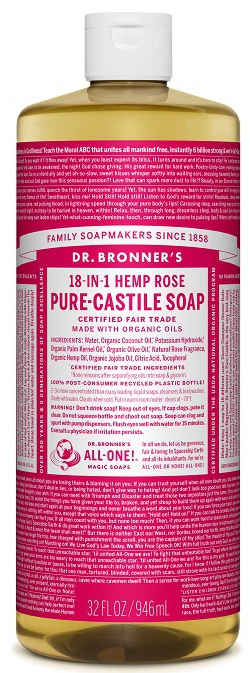Teaching kids about the goodness of eggs
As a child, I disliked breakfast cereals so much that I would only eat eggs or meaty things, which other parents thought odd. Today, with the obesity crisis overwhelming children and a good breakfast acknowledged to be vital, eggs are seen as ideal nourishment. ‘They are very high in protein, vitamins, minerals and antioxidants, with virtually no carbohydrate content,’ says Professor Charles Clark, consultant ophthalmologist and nutrition expert. According to Jenny Hewlett of The Food Explorers, a wonderful London-based non-profit company that works in primary schools to educate children and teachers about healthy eating, ‘Eggs are our favourite quick and filling breakfast but only three out of 100 children we surveyed eat eggs for breakfast regularly, while 41 have high-sugar cereals.’
The Food Explorers is on a mission to teach children to cook eggs. Last year it reached 750 schoolchildren, with scrambled eggs the favourite. ‘Little children love cracking eggs into a bowl and whisking them and older kids can cook them under supervision,’ says Jenny. ‘Poached eggs on brown toast with mashed avocado gives children a fantastic protein-packed start to the day. Or serve eggs fried, baked, in an omelette or boiled with toast soldiers.’ The Food Explorers also helps children grow herbs such as chives and parsley to add to eggs as part of their gardening project for schools.
For children who don’t like eggs, quick options include full-fat natural greek yoghurt with berries and homemade low-sugar granola, layered in a glass. Or a berry chia whip: a blended creation of chia seeds and porridge oats soaked in almond or coconut milk, fresh or frozen berries, maple syrup to taste and topped with a sliced banana. (For more information and recipes, visit www.thefoodexplorers.co.uk.)
 If, like my colleague Victoria, you have dermatitis on your face and the man in your life has a beard, this may be the culprit. ‘LA facialist Sonya Dakar told me the small, rash-like spots on my cheek could be down to the bacteria lurking in my husband’s beard.’ Other common culprits are mobile phones and cosmetic brushes (see below). Victoria is not certain what caused her rash, but Sonya’s advice was to pare down her skincare routine to just one targeted product for cleansing and moisturising. Sonya Dakar Organic Omega Booster is a simple serum based on flaxseed oil, rich in anti-inflammatory omega 3, 6 and 9, plus lavender and neroli or lemongrass and eucalyptus extracts, depending on your chosen formula (for dry/sensitivsensitive or combination/oily skin). ‘I used it for cleansing, with a hot cloth, then for moisturising. In less than a week my dermatitis had gone.’ After a successful launch in the US, Sonya Dakar Organic Omega Booster is now available in the UK/£39, www.cultbeauty.co.uk.
If, like my colleague Victoria, you have dermatitis on your face and the man in your life has a beard, this may be the culprit. ‘LA facialist Sonya Dakar told me the small, rash-like spots on my cheek could be down to the bacteria lurking in my husband’s beard.’ Other common culprits are mobile phones and cosmetic brushes (see below). Victoria is not certain what caused her rash, but Sonya’s advice was to pare down her skincare routine to just one targeted product for cleansing and moisturising. Sonya Dakar Organic Omega Booster is a simple serum based on flaxseed oil, rich in anti-inflammatory omega 3, 6 and 9, plus lavender and neroli or lemongrass and eucalyptus extracts, depending on your chosen formula (for dry/sensitivsensitive or combination/oily skin). ‘I used it for cleansing, with a hot cloth, then for moisturising. In less than a week my dermatitis had gone.’ After a successful launch in the US, Sonya Dakar Organic Omega Booster is now available in the UK/£39, www.cultbeauty.co.uk.
 Can you remember when you last cleaned your make-up brushes? If you’re like most of us, it was back sometime last year – or, for 38 per cent in one survey, never. Giving your brushes a weekly swoosh takes minutes, whereas removing long-embedded foundation takes rather longer. At Beauty Bible (my other hat), we suggest using natural soap (eg, Dr Bronner’s Organic Pure-Castile Liquid Soap/£5.99, www.drbronner.co.uk). Specialist cleansers include B Make-up Brush Cleanser/£4.99, www.superdrug.com.
Can you remember when you last cleaned your make-up brushes? If you’re like most of us, it was back sometime last year – or, for 38 per cent in one survey, never. Giving your brushes a weekly swoosh takes minutes, whereas removing long-embedded foundation takes rather longer. At Beauty Bible (my other hat), we suggest using natural soap (eg, Dr Bronner’s Organic Pure-Castile Liquid Soap/£5.99, www.drbronner.co.uk). Specialist cleansers include B Make-up Brush Cleanser/£4.99, www.superdrug.com.
WEBSITE OF THE WEEK; www.sanitaryowl.com
 A clever new online subscription service that gives you the choice of tampons, pads and liners (including organic Natracare) to build your bespoke box. You get a delivery every two months, for a cost of £4.99 per month. There is also good basic health information, including facts about STIs, toxic shock syndrome and a useful section for teens.
A clever new online subscription service that gives you the choice of tampons, pads and liners (including organic Natracare) to build your bespoke box. You get a delivery every two months, for a cost of £4.99 per month. There is also good basic health information, including facts about STIs, toxic shock syndrome and a useful section for teens.

